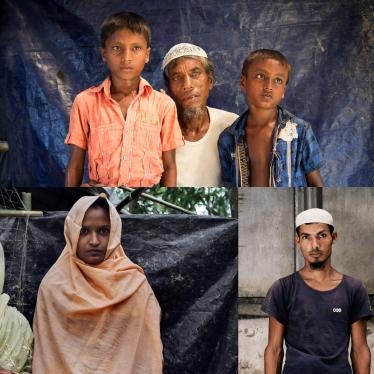(New York) - The United Nations Security Council should endorse a U.N. commission’s recommendations for addressing Indonesia’s failure to ensure justice for crimes against humanity in East Timor, Human Rights Watch said today. The commission’s report, which was sent to the Security Council, should be made public as soon as possible.
The Commission of Experts’ report, which was forwarded to the Security Council on Monday, found that the trials in Jakarta for crimes committed in East Timor in 1999 were “manifestly inadequate,” showing “scant respect for or conformity to relevant international standards.” In the report, the commission recommended that Indonesia accept international support to strengthen its prosecutorial capacity, advising that the Indonesian government be given a clear six-month timetable to show progress on the commission’s recommendations.
Should Indonesia fail to act, the commission urged the Security Council to consider establishing, under its Chapter VII authority, an international criminal tribunal.
“The U.N. commission’s report properly acknowledges that the international community has an obligation to ensure justice for the crimes against humanity committed in East Timor in 1999,” said Brad Adams, Asia director at Human Rights Watch. “The Security Council should make it clear that it will establish an international tribunal if Indonesia does not seriously pursue justice.”
During the six-month timetable, Indonesia should undertake much more aggressive efforts at prosecution, accept a team of international legal experts to assist its attorney general’s office, and reopen cases where appropriate, the Commission said. The report concluded that the original Jakarta trials were so flawed that those acquitted should not be granted immunity under double jeopardy clauses if new trials were to occur.
Of the 18 people the Indonesian government indicted for crimes against humanity in East Timor, 12 were acquitted at first instance and their acquittals have since been upheld by Indonesia’s Supreme Court. Of the six originally convicted, five had their convictions overturned by the Appeals Court. Only Eurico Guterres, an East Timorese militia commander, remains convicted at present. His conviction was upheld by an Appeals Court although his sentence was halved to five years. He remains free pending final appeal to the Supreme Court.
“Indonesia’s trials for crimes in East Timor speak for themselves: the process was a sham,” said Adams. “The U.N. experts’ report shows the Security Council that it’s time to put its weight behind a credible justice process.”
The report also recommended that the Security Council extend and strengthen the parallel justice process in East Timor. The report by the commission of experts found that the Serious Crimes Unit and Special Panels for Serious Crimes, in the Timorese capital Dili, had succeeded in prosecuting low-level militia members. However, it had been unable to bring to justice those who bore “greatest responsibility” for serious violations of human rights committed in East Timor in 1999, including senior Indonesian civilian and military personnel who remain at large in Indonesia and out of reach of the Dili tribunal.
At the same time, the U.N. commission expressed reservations about plans for a truth commission, the Commission of Truth and Friendship, recently proposed by the governments of Indonesia and East Timor. This proposal has been widely opposed by local civil society groups. The U.N. commission noted that the truth commission’s terms of reference, which include amnesty provisions even for perpetrators of the worst crimes, “contradict international standards on denial of impunity for serious crimes.”
“While the governments of Indonesia and East Timor may be ready to bury past crimes for the sake of political expedience, the people of East Timor, and many in Indonesia, feel that justice has not yet been done,” said Adams.
Human Rights Watch has long maintained that Indonesia has failed in its efforts to bring to justice high-ranking perpetrators of crimes committed in East Timor. For details, see “Justice Denied for East Timor.”
After a quarter-century of brutal occupation, an estimated 1,400 East Timorese civilians were killed when the Indonesian Armed Forces and Timorese militias embarked on a campaign of murder, arson and forced expulsion in the months before—and days immediately after— the people of East Timor voted for independence in a U.N.-administered referendum in 1999.
The U.N. commission of experts, appointed by the U.N Secretary-General Kofi Annan, consisted of Justice Prafullachandra Bhagwati of India, Professor Yozo Yokota of Japan and Shaista Shameem of Fiji.






